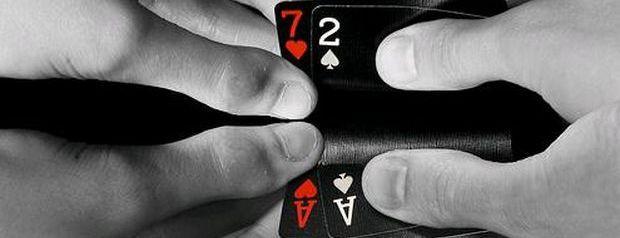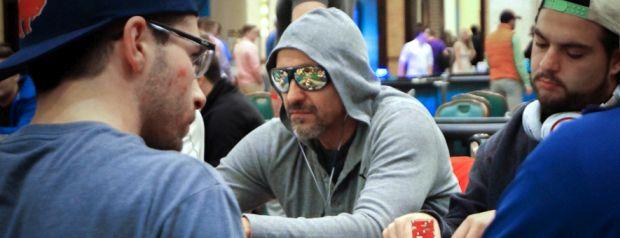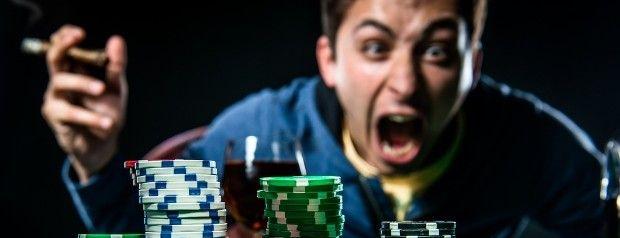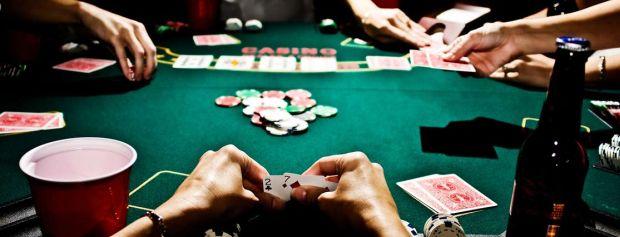Body Language that Will Improve Your Bluff
9 years ago

20 Jul
Every poker player gets dealt the same hands over time. Every hole combination has a certain percentage chance of winning against any other hole cards so it is how you play the hands rather than whether you or not you are dealt them that determines your success.
Presuming each hand wins the same number of times without any “moves” we can instantly see that winning pots with our weak hands will make us more successful. The process of doing so is known as bluffing. Bluffing is the art of winning a potby forcing the opponent to fold even though you hold such a weak hand it would not even stand up to a crying call. It’s a great feeling to successfully execute a bluff, especially against a good player.
Whether you can successfully execute a bluff depends on many factors. Your body language is just one of a number of things that must align in order for your bluff to work, and in this article we are going to look at some ways you can ensure you do not blow your bluff because of bad body language.
With over 55% of all communication being non-verbal, you ignore the signals your body gives out at your poker peril.

Don’t Oversell
Poker players generally do not flail around like lunatics openly displaying emotion. If you behave like this out of the blue, it will appear more than a little suspicious. When I talk about body language as I explain the concepts in this article, please note I mean in it’s most subtle form. You want your opponents to think they have spotted something that they think you believe is hidden, so thrashing around in a crazed fashion will not convince your opponents you are unaware of your actions!
Conscious Consistency
It is amazing how much information can be gained at the poker table without a word ever being uttered. It sometimes seems to me that because we are tuned into subtle body language signals anything obvious hits us like a ton of bricks!
You must make a conscious effort to be consistent, regardless of whether your hand is weak or strong. It can be tempting to get excited after a spell without a hand when you suddenly look down at pocket aces or pocket kings in the same way it can be easy to react with a slump of the shoulders when you look down at 7 2 offsuit for what seems like the hundredth time in the tournament you have been dealt it.
When you decide to bluff and your body language is consistent, you are giving no free information away. Your opponent will be looking for clues in your betting patterns as your story must check out, however, they will be looking for other clues too so you are protecting your hand if you remain in control of your emotions.

Deliberate Deception
After you have mastered emotional control you can begin utilize deception and acting to improve your chances of executing a successful bluff. In a marginal spot where your opponent is unsure whether to call or fold you can complete the bluff by nudging them over the edge with a subtle but effective physical gesture.
When you bluff you must show strength. You must never appear weak as this encourages your opponent to take a chance and call. However, if you overdo it to make sure your opponent notices your oscar-winning acting this can have the opposite effect and make you look really weak. This is the last thing you want because it increases the likelihood of your opponent calling and if you are bluffing your hand sucks!
Trying too hard to appear normal is known as the calling reflex. The ‘calling reflex’ is a term associated with amateur players who will go to incredible lengths to appear ‘normal’ (I do this in everyday life!) and thus they appear “different”. You can dramatically improve your bluffs by learning to look calm convincingly. This is a deception in itself.
Set up a ‘False Tell’
You can do various things to set up a false signal in your body language which might “tip off” your opponent that you are strong. For example, if you have an Ace in your hand and you catch an ace on the turn, check your hole cards every time you hit the ace. Hopefully it happens often enough where your opponent notices this apparent quirk in your game. They might link your checking of your hand if you hit with strength.
This is just one example and there are tons of other false tells you can develop over time. Make sure your opponent is capable of noticing these moves, otherwise you are wasting your time.

Use Amateur Presumptions against your opponent
There are a number of “rookie moves” associated with bad play that your opponents may see you doing and think they have just gained an edge when in reality they have just fallen into your trap. One such move is looking at your cards and quickly betting. This looks like an honest move and your opponents will believe you. Another “newbie” move is to casually take a sip of your drink after betting. Amateurs do this to look calm and in control, probably because they are panicking and hiding their excitement. If your opponent has read his “obvious bluffs by amateurs” tips, this action will look strong. Other examples of talking or staying quiet (whichever is not the norm for you) or placing your hand over your mouth, a subtle body language move where the body hopes to conceal emotion.
It is worth noting that these moves will only work if your opponents don’t know you and could therefore believe you completely suck at poker. For some reason no-one has ever questioned me when I bust one of these moves. I am sure this is a co-incidence!







Comments
You need to be logged in to post a new comment